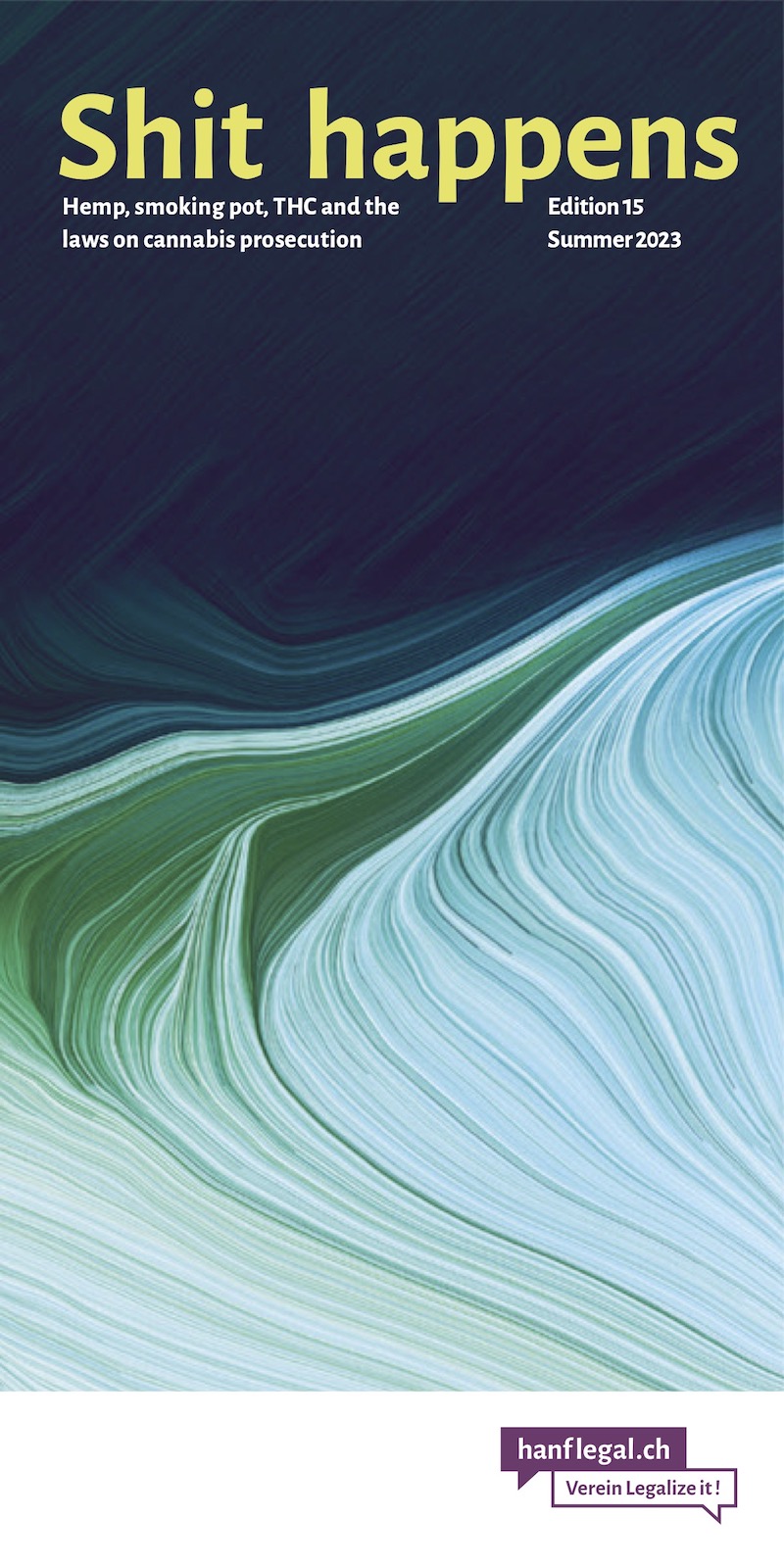- THC & Law:
Fall 2022: Another cannabis policy cycle begins
The subcommission has been appointed and can start its discussions and clarifications. In the next few years, it will work out how a new approach to hemp can and should be anchored in our legal system. Some clarifications are pending!
Subcommission definitely established
Following the decision of the Committee for Social Security and Health of the National Council (SGK-N) to set up a subcommittee (April 2022, see also Legalize it 94), it then appointed nine members in May 2022. What exactly their mandate is has not yet been made public. But it seems that it should be about a comprehensive new regulation of hemp and THC.
There is much to do
Legalization is a complex undertaking. New regulations need to be developed and coordinated in a meaningful way. So there is a lot to think about. The federal administration will also be involved in these clarifications. Basically, there are four different legal levels that the subcommission has to discuss. All of them are interlinked.
International contracts
First of all, the handling of the international drug conventions, which Switzerland has signed and which prohibit hemp, must be clarified. Paraguay and Canada have also signed these conventions and have solved the problem in their own way, well, not solved it, but circumvented it. Canada calls it “respectful non-compliance” - a really creative legal neologism! But Switzerland certainly needs its own way of dealing with this or its own word creation.
Constitutional article for hemp
Secondly, it must be clarified whether and which constitutional provisions are needed. For taxation, such a provision seems to be mandatory, but what else should our constitution say about hemp? This is a rather short text, but it must lay the foundation for the legal provisions.
Wording of the hemp law
Thirdly, a concrete legal text with the various paragraphs is needed. This text will certainly need a certain length to be able to clarify the many questions. Here, the basic norms of the new handling of hemp have to be defined. Ultimately, it is about the two areas of consumption and trade:
- Who may legally buy, own, produce for themselves and consume what, how much, where, when, how, and for what purpose?
- Who may legally produce and sell what, how much, where, when, how, for what purpose for others?
Content of hemp regulations
Fourth, the subcommittee must clarify which provisions should be included in the ordinances. The Federal Council or the administration can issue such regulations and change them again relatively quickly. This is where those provisions should be included that one would like to readjust on an ongoing basis.
Our thoughts on the comparison
We have listed all the points that need to be clarified on our legalization pages. We want to measure what comes out of the commission's work - in other words, how liberal or restrictive their proposals are.
The approximate sequence
All four areas must be coordinated with each other and form a meaningful whole. Two years will pass quickly, and perhaps it will take longer. After that, the result has to go back to the commission; the Federal Council will make its opinion known; the National Council and the Council of States will have to discuss and approve the texts. Then there will probably be one or more referendums. So it will take time!
Wait for the pilot projects?
It is unclear how far the results of the pilot projects that are now starting will be awaited, or whether work on the new texts, perhaps in variants, will be carried out in parallel.
A slimmed-down version?
A shorter way would be to change a few provisions in NarcA, which would then amount to a new edition of the opportunity principle from the beginning of the millennium, which was shipwrecked in the National Council in 2004 (e.g. toleration of some plants for one's own consumption; possibly toleration of transfer within the framework of non-profit associations or cooperatives if they comply with certain rules). But it does not look like that at the moment.
We are glad for all real decriminalization steps, small or big! For more developments, click here:
The discussions in Germany
Our neighbor to the north is also currently discussing such issues. There, the EU treaties also have to be taken into account. The euphoria is great among many activists in Germany. However, I know from experience that discussions are all well and good, but ultimately it comes down to the legislation that is passed. The first formulations could be available next year. I am very curious to see what the final outcome will be!
Support our work with a donation:
Bank transfer
Account number (IBAN):
CH02 0900 0000 8709 1354 3
Full account details
Or scan this QR code with your eBanking App (ZKB, Revolut, Postfinance, …):

Or open/share the QR code as PDF file with your eBanking App.
Credit card
Donate via credit card
Verein Legalize it!
Quellenstrasse 25
8005 Zürich
Threema ID 7NH65RBY
Don’t miss anything! Follow us on social media:
